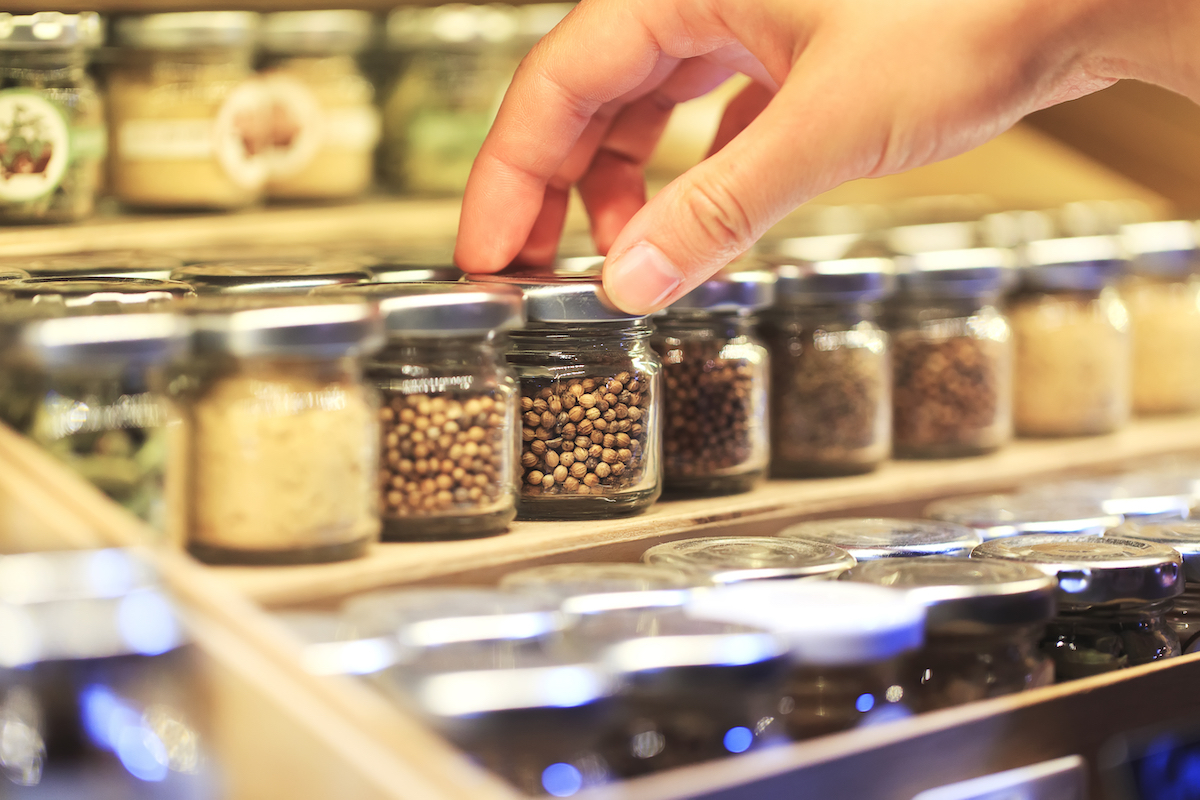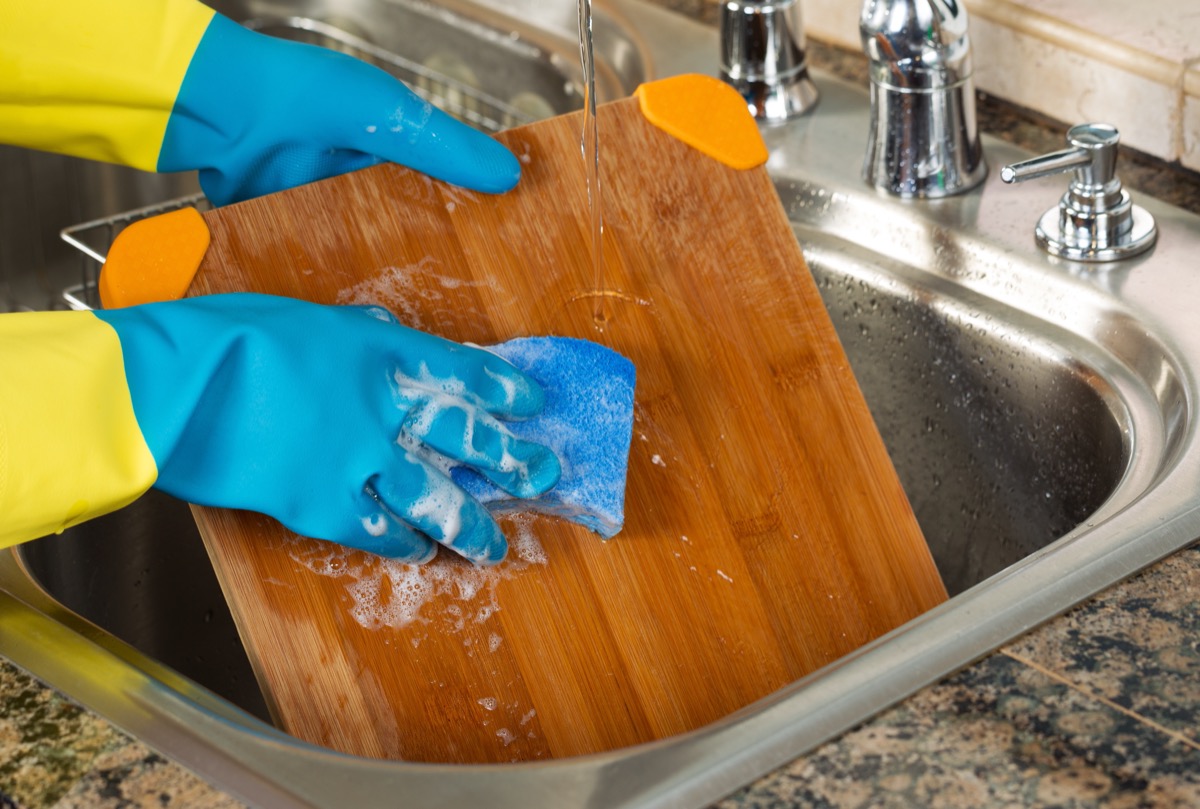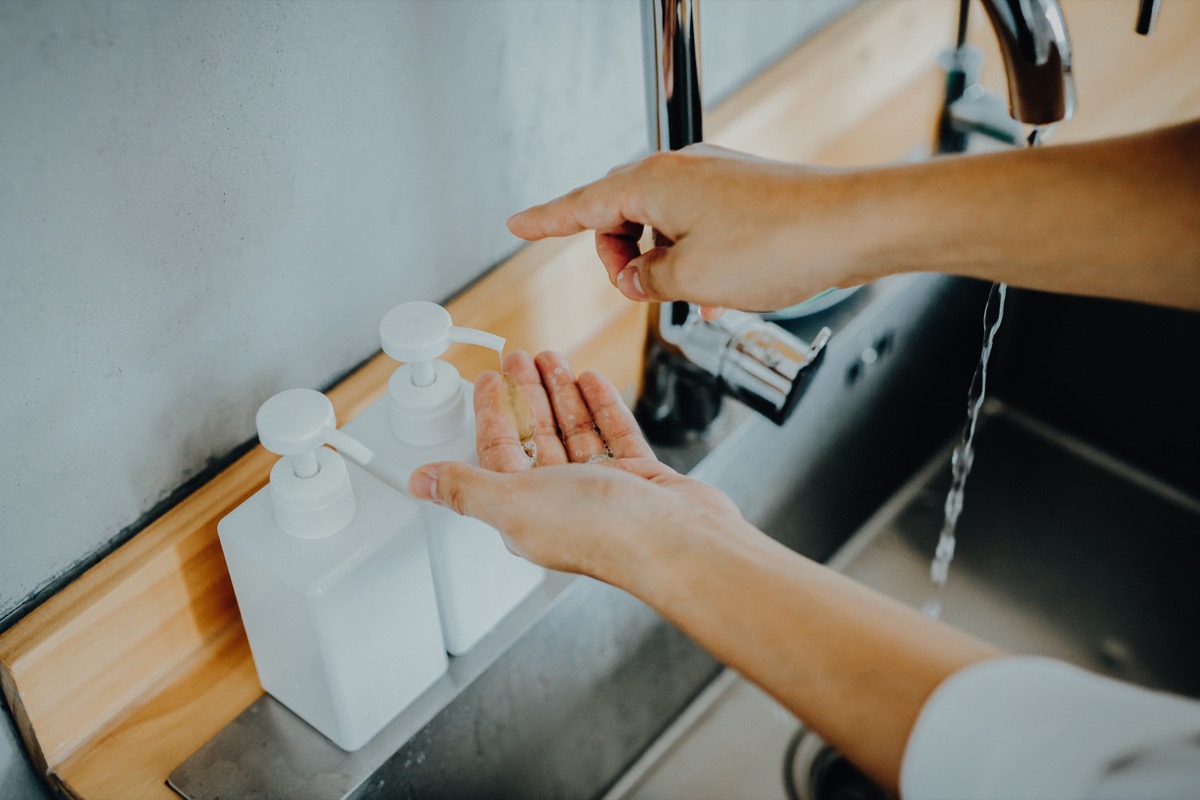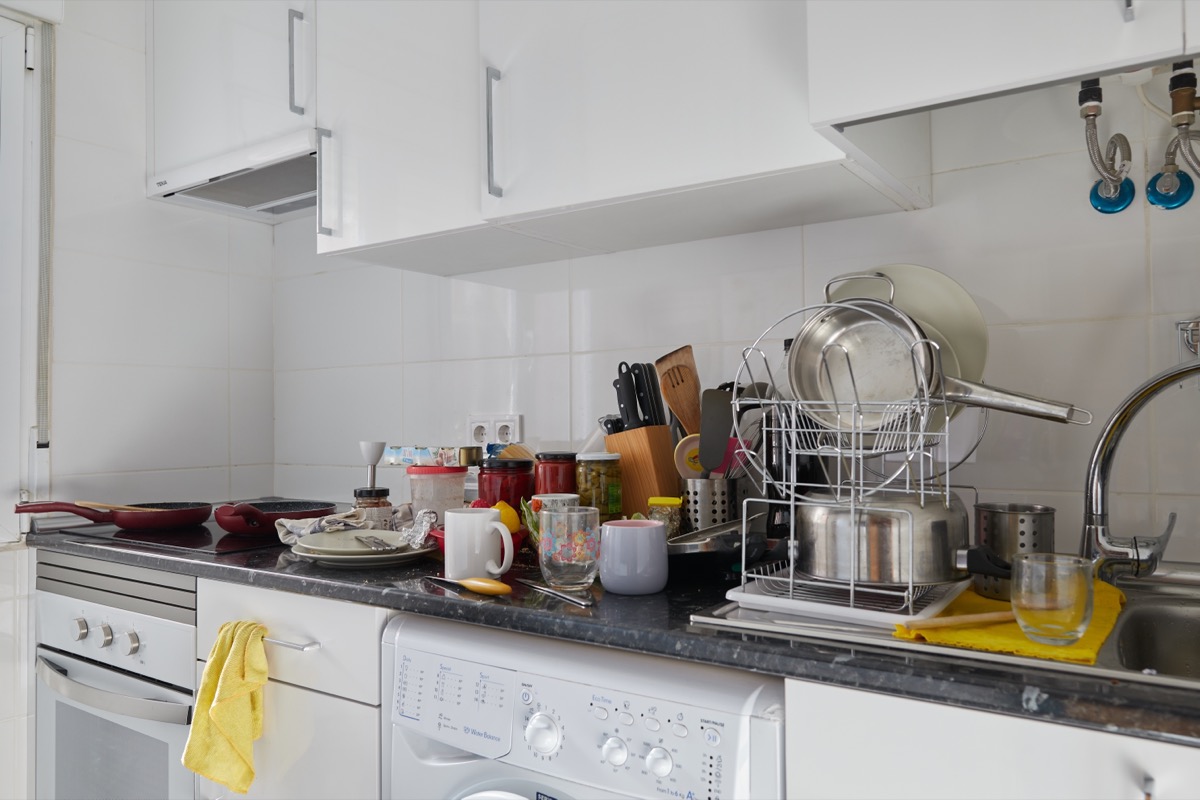Your Spice Rack May Be Crawling With Bacteria
It’s the germ-filled areas in your home that are most problematic. your bathroom Most likely, that’s the first thing that comes to your mind. But bacteria doesn’t just like to congregate in the bathroom. The kitchen is also home to many potentially harmful contaminants. According to a “germ study” The National Sanitation Foundation (NSF), in 2011, conducted more than 75 percent of dish sponges and rags They were contaminated Salmonella, E. coli, and fecal matter. Only 9 percent of bathroom faucet handle tests positive for that same bacteria. Yikes.
While it may not surprise you to hear that your kitchen sponge is germ-laden—that’s been widely reported for years—a recent study brings to light another common kitchen item to beware of: your spice rack. Continue reading to learn why the authors of the study were shocked by their findings and how you can prevent your spice jars potentially making you sick.
READ THIS NEXT What Happens When You Don’t Wash Your Sheets Every Week, Doctors Say.
Even if your kitchen is clean and neat, germs could be growing in it as you read this. NSF found that three of the top five were germs. germ hot spots In the kitchen, they were actually in the house.”
These are the dish sponges and rags mentioned above, the kitchen sink and the coffee maker’s reservoir. If you keep your pet’s food and water bowls in your kitchen, you can make those four hot spots.
What makes kitchens so special? germ-friendly environments? “There are bacteria in food, and touching it can spread it to other surfaces and potentially cause illness,” Specialist in infectious diseases Susan RehmAccording to Dr., the Cleveland Clinic. “Common bacteria found in the kitchen include E.coli, Salmonella, Shigella, Campylobacter, norovirus, and hepatitis A.”
Their experts pointed out that while E. coli And Salmonella Surfaces are only good for a few hours. “hepatitis A can survive for months.”

A study by the Agriculture Department’s Food Safety and Inspection Service was published in the Sept. 2022 issue. Journal of Food Protection The study examined the cross-contamination of pre-made and seasoned turkey burgers. It was done in a range of spaces, including small apartment kitchens and large teaching kitchens.
In order to trace contamination, the burgers contained harmless bacteria. After the meals were prepared, scientists swabbed 12 surfaces, including countertops and utensils.
What were the results? The results?
“We hadn’t seen.” evidence of spice container contamination Before,” said the lead researcher Donald SchaffnerFood Safety News was told by a Rutgers School of Environmental and Biological Sciences Professor in the food science faculty. “Most research on the cross-contamination of kitchen surfaces due to handling of raw meat or poultry products has focused on kitchen cutting boards or faucet handles and has neglected surfaces like spice containers, trash-bin lids, and other kitchen utensils.”
To receive more health news directly to your email, subscribe sign up for our daily newsletter.

It was clear that cutting boards was the most contaminated surface of all surfaces tested by researchers, with trash can lids in third.
Researchers believe that spice jars may contain higher levels of bacteria than cutting boards or garbage cans. “could be due to their close proximity to the region in which turkey patty handling occurred, the lack of attempts made to wash hands between handling the ground turkey and seasoning the patties with the spices, the lack of attempts made to clean or sanitize the spice containers after handling, and the high number of times the containers were handled,” They also wrote in the research.
What is the best prize for surfaces that are least contaminated? “Notable exceptions were the refrigerator handle and inner sink surfaces, which were positive less than 10 percent of the time.”

If the study’s finding freak you out, take a deep breath—there’s no need to swear off spices and resign yourself to making bland food forever. You and your digestive tract will be safe if you wash your hands often.
“After you are done with a turkey patty, it is time to wash your hands.” grab that spice jar,” Benjamin ChapmanAccording to Dr. Jeremy Sullivan, North Carolina State University’s head of the Department of Agriculture and Human Sciences and senior author of this study, The Washington Post. He also pointed out that the seasoned turkey hamburgers, which were formed by hand by the experimenters, were chosen specifically for the study due to their aforementioned attributes. “worst-case scenario.”
You are still worried about germs getting into your spice rack and causing illness. Chapman suggests wiping the spice jars clean with a damp cloth and disinfecting kitchen spray after each use.
" Conservative News Daily does not always share or support the views and opinions expressed here; they are just those of the writer."




Now loading...